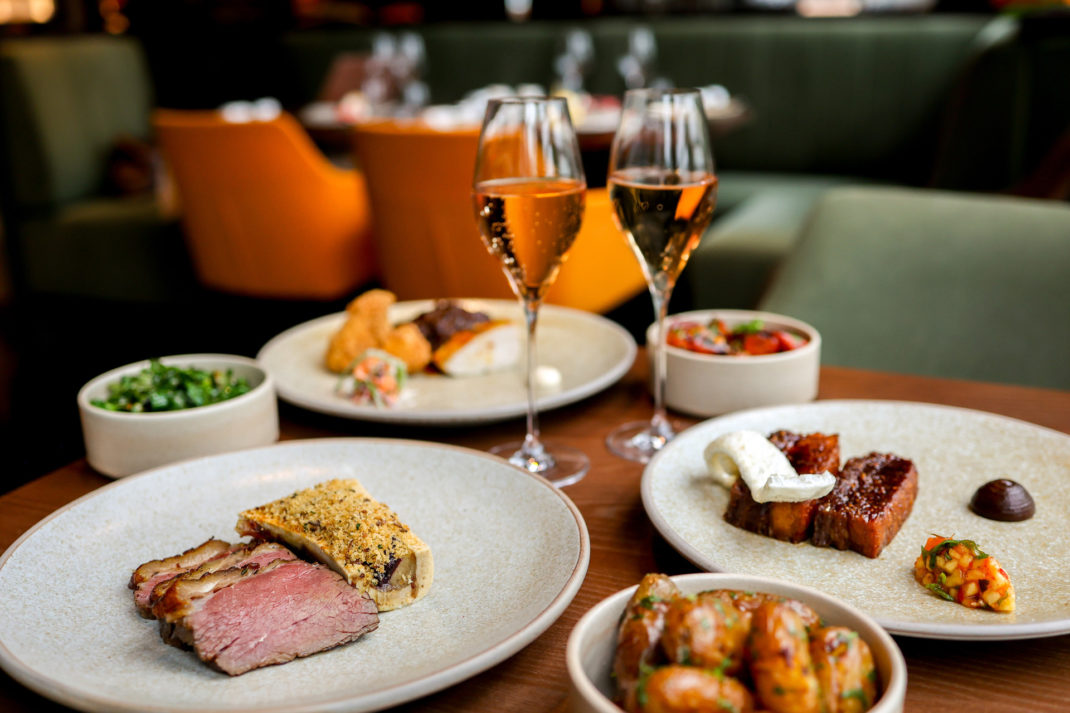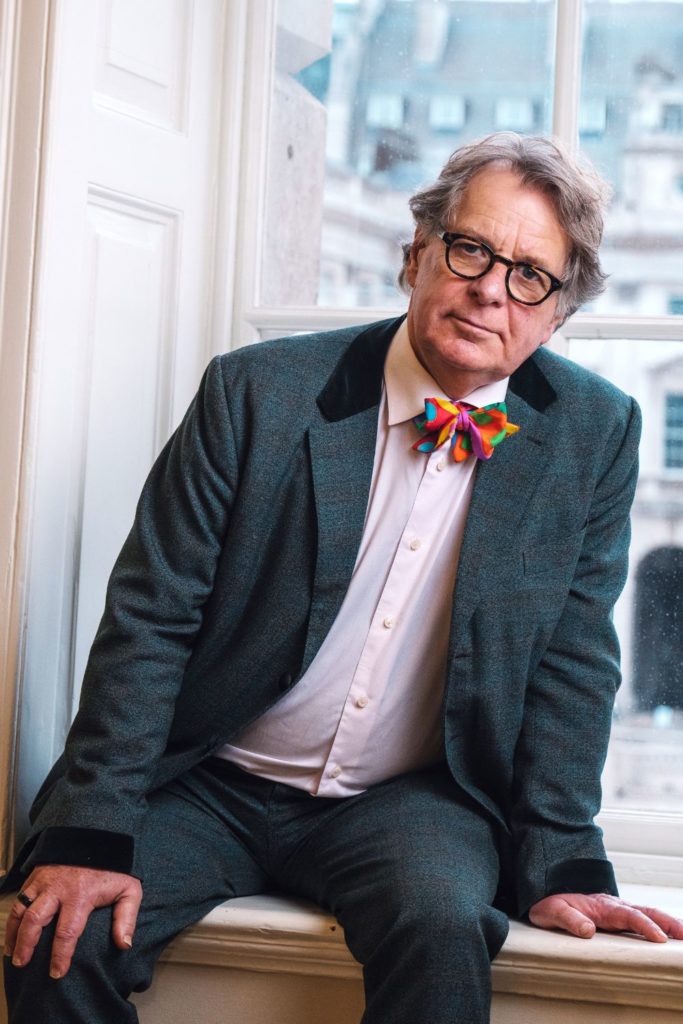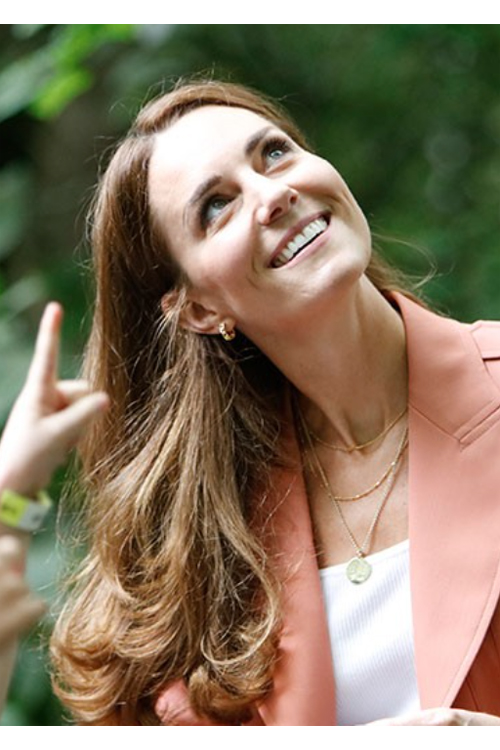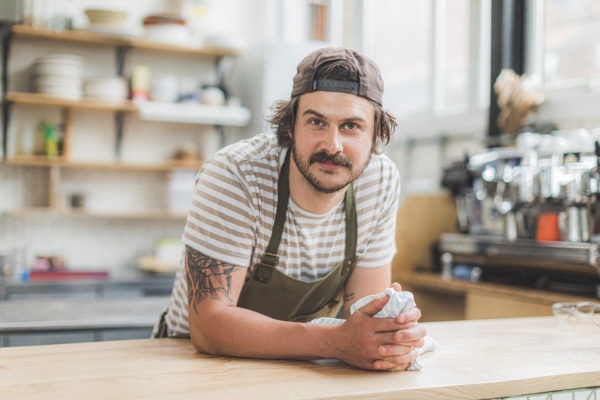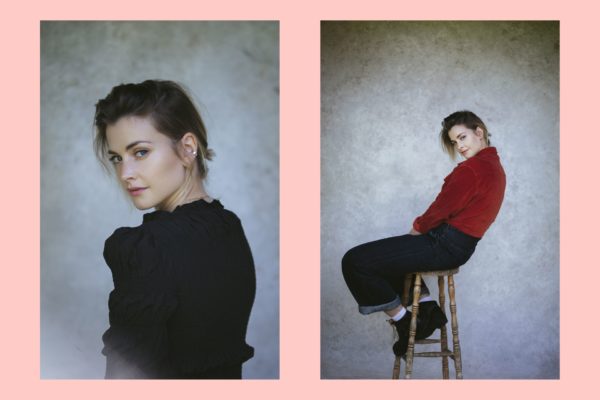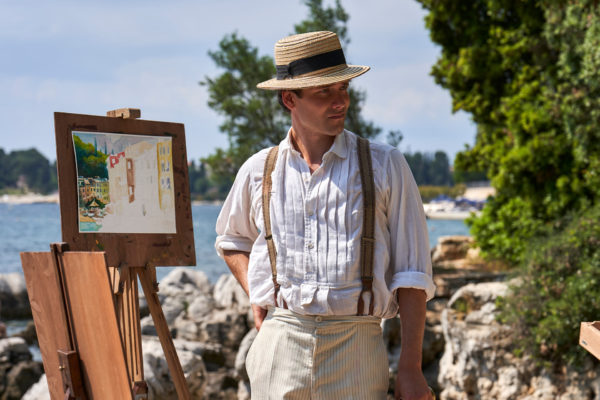‘I feel so grateful to past me for not giving up’: Hayley Morris – Interview
By
2 years ago
Hayley Morris' book, Me vs Brain: An Overthinker's Guide To Life is out now

Olivia Emily chats to TikTok comedian turned author Hayley Morris about her new book, Me vs Brain: An Overthinker’s Guide to Life, out now.
Me vs Brain: An Overthinker’s Guide to Life by Hayley Morris
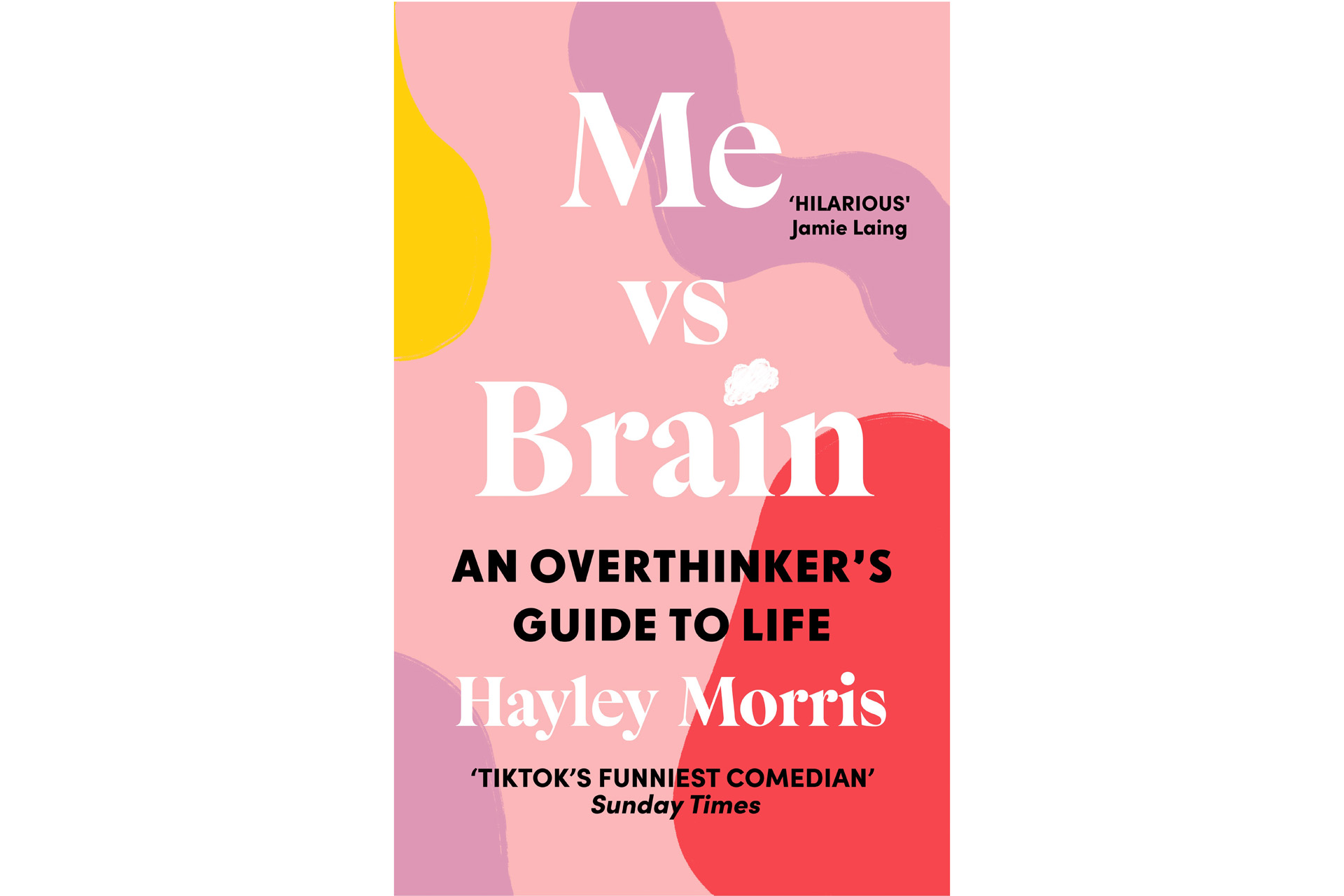
Me Vs. Brain: An Overthinker’s Guide to Life by Hayley Morris is out now, published by Century in hardback, £18.99.penguin.co.uk
You might recognise Hayley Morris from your TikTok ‘for you’ page – or perhaps you’re in the legion of her 4.1 million followers. Undoubtedly, it was a skit you saw: Hayley playing the role of a menstrual cup, or her boobs, or her hormones, or perhaps wearing a dressing gown to cosplay as a tampon. Mostly, Hayley plays the role of her brain: her skits centre on the intrusive thoughts (and witty asides) the brain comes up with when left to its own devices. Hayley makes these innermost thoughts visual and relatable in her short TikTok skits. But, in Me vs Brain, Hayley turns to paper.
‘Welcome to the world of overthinkers’: Me vs Brain is immediately closer to the heart, drawing Hayley’s audience in; we’re not separated by a screen anymore. Rather than hold back, she indulges the form, finally permitted to write at length about the topics explored in her skits (otherwise confined by TikTok’s short-form structure), yes, but also to delve into the thought process underpinning these skits.
‘For as long as I can remember,’ Hayley writes in the preface, ‘my head has been filled with noise. Not soundtracks to popular movies or words of advice from kindly spirit guides, but one particular voice.’ This voice, Hayley writes, is her brain (or just ‘Brain’, as Hayley calls her – one of the book’s main characters).
‘The voice comes from inside my head, but it isn’t me,’ Hayley continues. ‘It’s Brain. I, Hayley, am a well-balanced, calm and relatively good person, I think. Brain is not. She’s scatty, annoying and wrong about basically everything.’
Hayley explores this intrusive thought process across more than 40 chapters, from the lighthearted (‘How Brain Interprets A Text Exchange’, ‘How to Cover Up a Fart’) to the heavier, more vital topics that Hayley wants to demystify, from grief to cervical screenings. ‘This is the topic I really think it’s important to talk about,’ Hayley would tell herself while writing. In retrospect, she tells me: ‘There’s so many chapters in there that I’m writing to help people have those open conversations with their friends – or even to just think about it themselves.’
All 284 pages of Me vs Brain are vibrant and witty; Hayley’s voice reverberates off the page. The book is really pretty, too. We sat down to delve into the writing process, and what Hayley hopes Me vs Brain will grow into.
Interview With Hayley Morris, Author Of Me vs Brain: An Overthinker’s Guide To Life
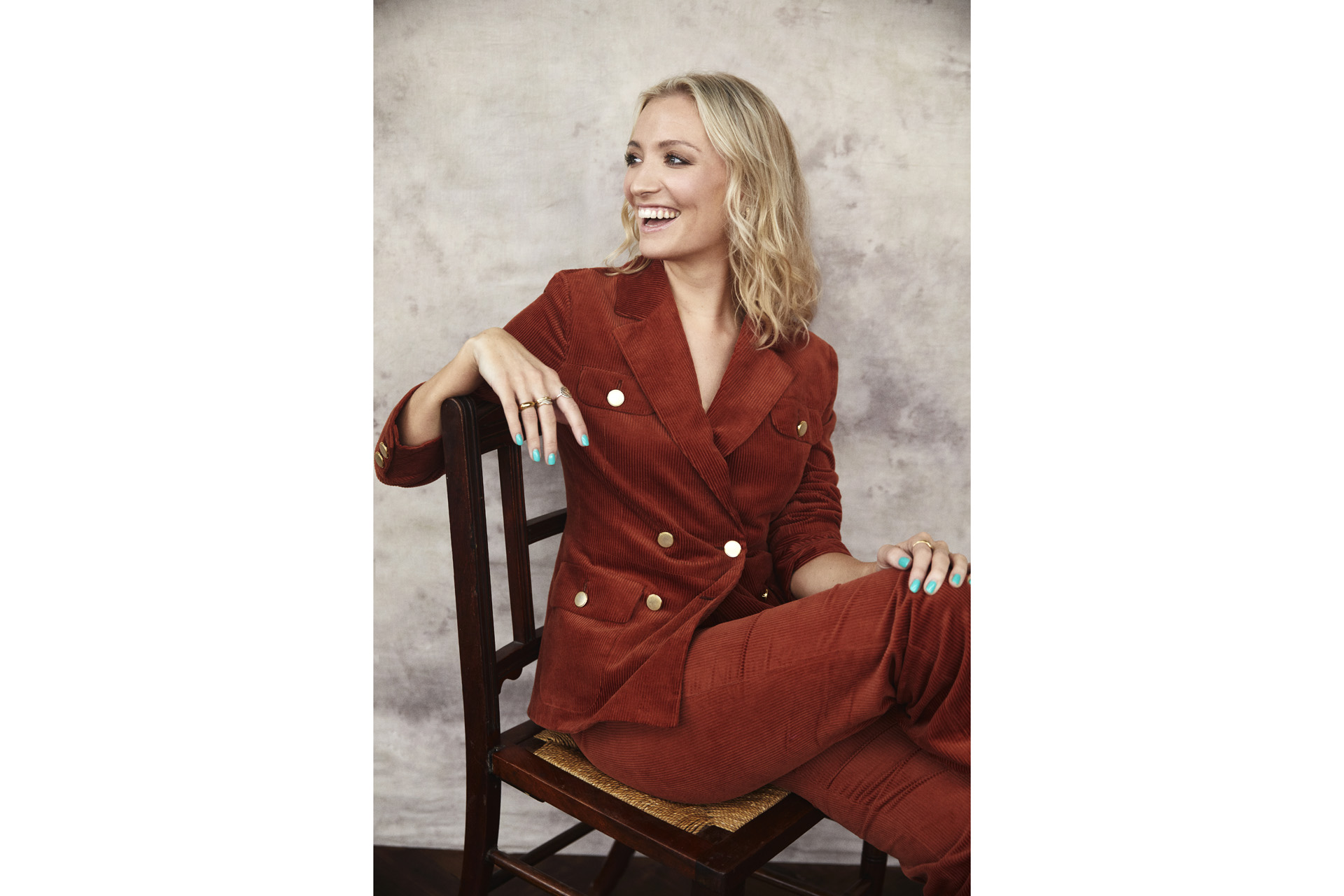
© David Reiss
Olivia Emily: I’ve been reading Me vs Brain, and I’m loving it. It’s so funny! Can we start by giving our readers an elevator pitch of what they can expect from the book?
Hayley Morris: If anyone’s reading it that has watched any of my sketches before, it’s going to be similar to that – but a lot more vulnerable, honest, open. It has some of the things that I have touched on in sketches before, but I’ve gone much deeper into it. I’ve tried to do it in a comedic way, but there are also very vulnerable moments: talking about my dad’s death, talking about intrusive thoughts, health anxiety – and things that I’ve done that I think make me sound a little bit unhinged.
I am such an over-thinker as well, so when I started reading the book, I found it really refreshing how open you are! You say at the start that you found writing a book daunting – how did you find the process after getting over that initial jump?
It was really difficult, if I’m honest. You become really attached to things. There are probably five or six chapters I removed from the book in the latter half of the process when I realised they didn’t fit, or I decided it wasn’t the right time to share that story, or my editor at times suggested I remove things. But you get really attached. You feel like, ‘Oh, but if I remove that, it’s not the same book anymore.’ But it is! It’s just the way that you attach yourself to things. There were so many moments where I was like, ‘this sucks!’ – which I think is very normal for anyone who’s doing anything creative.
Yeah, you have to kill your darlings! You may love it, but sadly it’s exactly the same thing without that line that you think is really clever and witty.
Exactly! It was a really good learning curve. It was really fun, don’t get me wrong – I had such a good time doing it. But also I learned so much.
Was there a lot of back and forth in the process? What was the journey like?
I first started writing around January 2022 or December 2021, and I checked in with my editor probably once every month. Then she gave me notes because I’ve never written anything before. I was asking her, ‘Am I writing the book correctly?’. And she was like, ‘there isn’t a wrong way!’, and I was like, ‘I feel like there is…!’. So it was quite funny. But the main thing I had to learn was how to structure all of the chapters, especially as they’re like self contained essays. So to have it running with a start and a finish was really difficult – but it was also very therapeutic to put it into place.
And you say in the introduction that you didn’t know what you wanted your book to be about at the start. I was wondering how you came to land on overthinking as a general theme?
It just made sense to me, because I think you have to write what you know. I always knew it would be called Me vs Brain, but I wasn’t entirely sure what I would include in there. But every time I was writing something I was like, ‘right, this is the topic I really think it’s important to talk about’, and then I just wrote what I knew, and then it all kind of slotted into place.
When you were writing, did you have any ways you would get into the zone, or any rituals?
Weirdly, I found that if I’m awake before I feel the rest of the world is awake, I’m more productive. I was waking up as early as possible to start writing a chapter, and then when I knew people started at work at 9am, for some reason my productivity stopped. I really don’t know what it was. It was almost like the peace of the world made me feel like I could just dive into it. I’d usually write until 9am, and then edit what I had. The best time I wrote was around 5 or 6am until 9am, which… I will never get up at 5am again.
That’s so funny. What about a writing playlist?
The only song I had in the writing playlist – which was my most played on my Spotify Wrapped – is from The Theory of Everything, and it’s called ‘Cambridge, 1963’. I looked at my Spotify Wrapped, and I was like, OK… Do I share this…?’. But it’s just such a nice piece of music.
So random! How did you find being edited?
I actually found it really helpful. As I said, you get really attached to things you’ve written, so you are challenged on things. In your head, you’re always like, ‘this makes sense to me’. But then someone else reads it and it doesn’t. I really liked that. Criticism is often difficult, especially for your ego, but I really enjoyed having someone critically go through what I’d written and guide me in the right direction. So yeah, that was actually quite a fun part of it.
And I imagine quite different to what you’re used to if you work alone a lot? So you’re not used to getting the feedback and the criticism?
Absolutely. And I feel like now it actually helps me with the sketches I do. Now I can understand what people are looking at critically with my work, and I try to apply that to the sketches, or anything else I do.
That’s good! I remember there’s a moment in Me vs Brain where you say the brain overthinks because it’s trying to imagine the worst possible outcome. And that made me personally feel… Just generally a lot less evil! Sometimes, intrusive thoughts can make you feel like a terrible person. So I was wondering, with the book subtitled ‘an overthinker’s guide to life’, was reassurance the goal? Or what were you looking to do?
I think mainly to start a conversation. At the end, I say ‘I can’t fix you – you’re not broken’. None of what I’ve written is there to be full-on advice, because I don’t think I can advise someone on what they should and shouldn’t do. But I can say, ‘Hey, if you relate to this, then just know that that’s probably how we all are’. There’s so many chapters in there that I’m writing to help people have those open conversations with their friends – or even to just think about it themselves.
Fundamentally, at the core, I think we are all exactly the same. We’re all wired very similarly. I think there are those people that don’t have the scary internal thoughts, but also a huge percentage of us do. We live in fear of those thoughts, and we live feeling like it makes us alien, it makes us unusual, it makes us evil, like you said. But it’s just a brain that has a mind of its own. It’s not you. And I think, ultimately, I’m just trying to get across that you are normal and you can laugh at these things. They don’t have to plague your life and make you feel scared.
It is so interesting – I never really thought about how scared we are to talk about something that most of us probably experience. It’s just a really weird, shared silence.
Yes. Starting the sketches, I started to notice how secretive and weird we are about so many things – like anything that happens with our body, we’re all very scared to talk about, and instead feel really alone. It’s so bizarre that, collectively, we all experience these things, but we feel so alone in them.
@hayleygeorgiamorris Happy V 🌮 day I guess #MeVsBrain #Comedy #Funny ♬ original sound – Hayley Morris
There’s lots of different chapters in the book, and it reminded me a lot of your skits. How did you find the transfer from writing and creating skits to writing a book?
It was really different! It took me a while to get into the groove of writing long form, because I am used to getting everything into a 30 second time limit. For TikTok, I write the bones of the script, add the gags in, have the story there – and then strip back half of it. When TikTok introduced 60 second videos, it was still hard because you would create more of a story and you add in more, but you also have to remove more. Whereas for the book, I was looking at word counts, so it was like a backwards way of doing my skits. How can I develop and build on this rather than take things away?
You started on TikTok in the pandemic, and you mention in the book the random jobs you did before then. Hospitality, working at Disney in Florida, working on a farm in Australia… How did you look at your career before TikTok?
I actually spent 10 years working on skits and things online before TikTok over on YouTube. No one was really watching, but it’s always been something I’ve had a passion for. I’ve always strived toward doing this full time, or being able to write for comedy or act or just do something in the sphere that I’m in now. I’ve never really known how to get there – but I’ve always done it. So with jobs, it was always a question of what I could do that would tick things along financially, while also supporting myself doing the stuff that I most enjoy. This is why all the jobs I’ve had have been quite random!
What do you think it was about TikTok that really bumped you up and started bringing success?
Honestly, I think YouTube just wasn’t the right platform. But if I didn’t do the work I did on YouTube, I wouldn’t have known what I knew to do TikTok. It helped me find my voice in comedy, and it helped me fail. I failed a lot on YouTube! I learned a lot from my mistakes. And then when TikTok appeared, it was the perfect time to do comedy. Ultimately, it was the right place, right time. It sounds so cringey, but I feel so grateful to past me for not giving up, because I would have slogged for years and never seen any of the reward had I just been like, ‘Oh, it’s just not happening’. I think you do have to do it because you love it.
It must take so much resilience! Did you always want to do comedy growing up?
Yeah! When I was younger, my dad was a writer and an advertiser, but he used to write a lot of comedy sketches and scripts on the side, and he used to get my brother and I to act things out. There’s so many home videos of my brother and I doing these sketches that we just didn’t understand the comedy of! We loved doing it, and I think that has been ingrained in my memory. It’s been something that has grown with me.
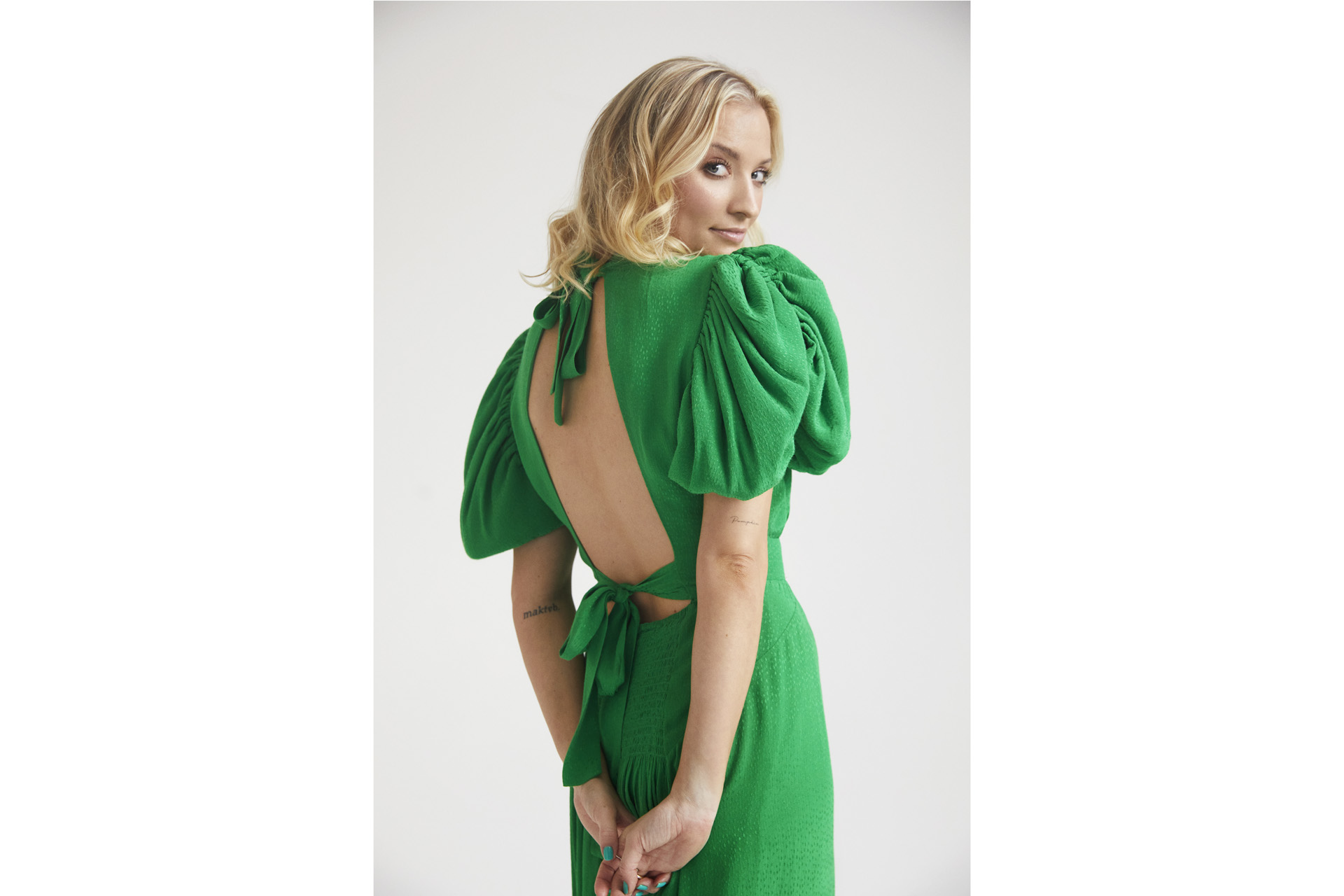
© David Reiss
Do you have any ultimate career goals?
Currently, the biggest career goal is to be in a series on HBO Max, very specifically The White Lotus. But anything on HBO. I’m obsessed. I feel like they just create some of the best shows. And they’re different – not like everything else you see. That’s what I love.
How do you, being a social media person, separate your work-life balance on social media?
I think that is the hardest part, especially at the beginning. But I don’t really use social media for personal use anymore. And I don’t use social media on weekends. It’s a really strict thing for me, because that is work. You have to have really clear boundaries, which is really tough, because it’s such a reflex to go on them.
How do you switch off or wind down on a weekday? Or what do you get up to at the weekend?
On a weekday, as long as I’ve got everything I need to do that day done, I turn it off. The latest I’ll turn something off is seven – I’m quite strict in the fact that I do need to have an evening. Then I make sure I spend the evening either going out of the house or cooking and watching TV. On weekends, I try to have a day where it’s like a big reset, and I get the house in order so I can feel like I’ve got my life in order. And then I have a day where I’ll go out, go for a walk, see friends, try and have fun. Try and live!
If you could give your top piece advice to everyone on how to live life a little bit better, what would it be?
Probably just be comfortable being you. And that also means not worrying so much about what the outside world is thinking about you. Live for yourself. That’s probably quite a generic piece of advice, but I think it’s the one thing that we all suffer with.
Definitely. Do you have anything fun in the pipeline coming up, professionally or personally?
I’m working on writing some sitcoms and shorts that are longer form than what I’m doing. And then I’m also auditioning for roles and taking acting classes – that’s kind of the most exciting thing at the moment!
Quick Fire
I’m tuning into… The Last Of Us
What I’m reading… The Seven Husbands of Evelyn Hugo by Taylor Jenkins Reid
The last thing I watched (and loved) was… The White Lotus
What I’m most looking forward to seeing… More female written TV shows and films. Written, directed, and just completely produced by women.
Favourite film of all time… Pretty Woman
Band/singer I always have on repeat… A lot of Miley Cyrus at the moment, which is unusual for me but I love her new song. Other than that, the Beach Boys.
My ultimate cultural recommendation… Just speaking to people. Talking to strangers more.
Cultural guilty pleasure… A lot of what I think is titled ‘pop princess’ music. Like Britney Spears, Christina Aguilera, Avril Lavine, Beyonce – old school, a lot of that.
What’s next for me is… Hopefully acting. Fingers crossed!
Me Vs. Brain: An Overthinker’s Guide to Life by Hayley Morris is out now, published by Century in hardback, £18.99. penguin.co.uk
Featured image: Hayley Morris, photographed by David Reiss (cropped).

